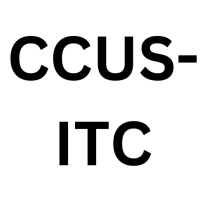Summary
Cut through the green tape
We don't push agendas. At Net Zero Compare, we cut through the hype and fear to deliver the straightforward facts you need for making informed decisions on green products and services. Whether motivated by compliance, customer demands, or a real passion for the environment, you’re welcome here. We provide reliable information—why you seek it is not our concern.
Details
- Canada
Deep dive
Background
Introduced in Budget 2021 and legislated through amendments to the Income Tax Act under Bill C-59, which received Royal Assent in June 2024, Canada’s Carbon Capture, Utilization, and Storage (CCUS) Investment Tax Credit (ITC) is a refundable tax credit designed to accelerate private-sector investment in CCUS technologies. The legislative framework for the ITC was further detailed in the accompanying Regulations Amending the Income Tax Regulations, which specify eligibility criteria, compliance obligations, and phase-out provisions. Administered jointly by the Canada Revenue Agency (CRA) and Natural Resources Canada (NRCan), the ITC applies to eligible expenditures incurred between January 1, 2022, and December 31, 2040, with credit rates phased down after 2030. The program builds on prior federal climate initiatives, such as the Clean Technology Investment Tax Credit, and aligns with Canada’s GHG reduction targets, which aim to cut emissions by 40–45% below 2005 levels by 2030. The CCUS ITC is tailored for industrial sectors such as concrete, plastics, and fuels, while explicitly excluding projects involving enhanced oil recovery (EOR) unless they meet strict CO₂ sequestration standards. By embedding its authority in the Income Tax Act and related regulations, the CCUS ITC provides long-term legislative certainty for investors and stakeholders in Canada’s transition to a low-carbon economy.
Reporting Requirements
As detailed in the technical guidance document, the CCUS ITC program mandates specific reporting obligations for participants. This includes:
Annual Claim Reports: All taxpayers claiming the CCUS ITC must submit annual claim reports to Natural Resources Canada (NRCan). These reports detail the CCUS property for which the credit is claimed and are verified against the latest project evaluations. Submission of these reports is a prerequisite for claiming the tax credit.
Knowledge-Sharing Reports: Projects expected to incur $250 million or more in qualified CCUS expenditures are required to provide knowledge-sharing reports with information carbon emissions, among other project details. These include a one-time construction and completion report due six months after the project start-up date, and annual operations reports for the subsequent four years, each due by June 30 following the reporting year.
Climate Risk Disclosure Reports: Corporations with ownership in CCUS projects incurring $20 million or more in qualified expenditures must publish annual climate risk disclosure reports. The first report is due nine months after the end of the taxation year in which the ITC is first claimed, with subsequent reports required annually for up to 20 years post-commercial operations.
Applicable Businesses and Scope
The CCUS Investment Tax Credit (ITC) program in Canada applies to businesses that invest in eligible carbon capture, utilization, and storage (CCUS) projects. Specifically, the program is designed for:
Corporations subject to Canadian income tax – This includes large industrial emitters, energy companies, and other businesses investing in CCUS technology.
Entities developing or operating CCUS projects – This covers firms that capture CO₂ emissions from industrial processes, transport it, and either store it underground or use it in other applications.
Businesses making qualified CCUS expenditures – These expenditures include the cost of designing, purchasing, installing, and operating CCUS equipment.
Firms in key industries – The program is particularly relevant for businesses in the oil and gas sector, power generation, cement, steel, and chemical manufacturing, as they have high carbon emissions and could benefit from CCUS investments.
To qualify, businesses must demonstrate that their CCUS projects meet federal environmental and regulatory requirements. They must also commit to detailed reporting obligations as identified above to maintain eligibility for the tax credit.
Penalties for Noncompliance
Noncompliance with the reporting obligations of Canada's Carbon Capture, Utilization, and Storage (CCUS) Investment Tax Credit (ITC) program can result in significant penalties:
Knowledge Sharing Reports: For CCUS projects with eligible expenses of $250 million or more, failure to submit the required knowledge-sharing reports to Natural Resources Canada (NRCan) incurs a penalty of $2 million for each missed report.
Climate Risk Disclosure Reports: Corporations with ownership interests in CCUS projects expected to incur $20 million or more in qualified expenditures must publish annual climate risk disclosure reports. Failure to publish these reports results in a penalty equal to the lesser of 4% of the total CCUS ITCs claimed or $1 million.
As the CCUS ITC program was introduced in 2022, and its reporting requirements are still relatively new, there are no disclosed instances of the above penalties being enforced as of April 2025.


